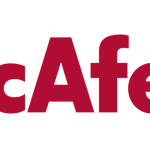- Branche: Software
- Number of terms: 9143
- Number of blossaries: 1
- Company Profile:
Also known as patches, these releases include intermediate distribution of software or upgrades that repair specific issues.
Industry:Internet
Also know as interrupt interceptor, a type of virus that attempts to avoid detection from anti-virus software. Many stealth viruses intercept disk-access requests, so when an anti-virus application tries to read files or boot sectors to find the virus, the virus feeds the program a “clean” image of the requested item. Other viruses hide the actual size of an infected file and display the size of the file before infection. Stealth viruses must be running to exhibit their stealth qualities.
Industry:Internet
A type of product that examines inbound and outbound web traffic for spyware, malware, viruses, data loss, and Internet misuse. Filters can also block web access or content — usually based on origin, reputation, intent, or policy — to prevent data loss, malware, and inappropriate use. Category-based filtering lets users block groups of sites based on standardized categories, such as pornographic content, games, or shopping.
Industry:Internet
Part of the McAfee convention for naming viruses and Trojans. This suffix is attached to the end of virus names to indicate that the virus can transmit itself via email. The single “m” indicates that the virus is capable of generating low volumes of email, typically one email transmitted for each email a user receives.
Industry:Internet
The process of analyzing the risk associated with vulnerability scan results.
Industry:Internet
A malicious program that pretends to be a benign application. It does not replicate but causes damage or compromises the security of your computer. Typically, an individual emails a Trojan horse to you; it does not email itself. You can also download a Trojan from a website or via peer-to-peer networking. Trojans are not considered viruses because they do not replicate.
Industry:Internet
A utility that tracks and logs failures in the software on your computer system. You can use this information to help analyze problems.
Industry:Internet
The “cargo” code in a virus rather than the portions used to avoid detection or replicate. The payload code can display text or graphics on the screen, or it may corrupt or erase data. Not all viruses contain a deliberate payload. However, these codes affect CPU usage, hard disk space, and the time it takes to clean viruses. Payload can also refer to the data or packets sent during an attack.
Industry:Internet
